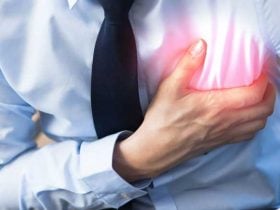Heart failure occurs when damage or injury to the heart prevents it from being able to pump enough blood throughout the body. Many times, this damage is caused by heart attack or coronary artery disease. Heart failure could be the result of faulty valves or chronic high blood pressure. The lack of sufficient blood supply caused by heart failure can disrupt the function of organs in the body.
The Center for Disease Control and Prevention estimates that about 5.7 million Americans have heart failure. [1] Most of them are men, although women are more likely to die from untreated heart failure.
Most times, heart failure happens when the heart finds it difficult to pump enough blood to the organs of the body. In some cases, it is the result of a progressive hardening of the heart muscles. This can cut off or limit the supply of blood to the heart itself.
Heart failure may be short-term (acute) or long-standing (chronic). Acute heart failure is sudden and usually goes away after a while. It often follows a heart attack but may happen due to the damage to the heart valves. Chronic heart failure accounts for most cases of heart failure. The symptoms of chronic heart failure are ongoing and do not get better with time.
Heart failure is a serious condition that should be treated with urgency. See a doctor if you’re experiencing any of these heart failure symptoms:
Fatigue

Fatigue is a general feeling of intense tiredness or lethargy. It may be caused by lifestyle choices or mild to serious health conditions.
Extreme tiredness or fatigue is one of the early signs of heart failure. [2] The muscles and organs of the body require oxygen to produce the energy they need to work. Fatigue sets in when the heart is unable to pump enough oxygen-rich blood to meet the energy needs of the body.













